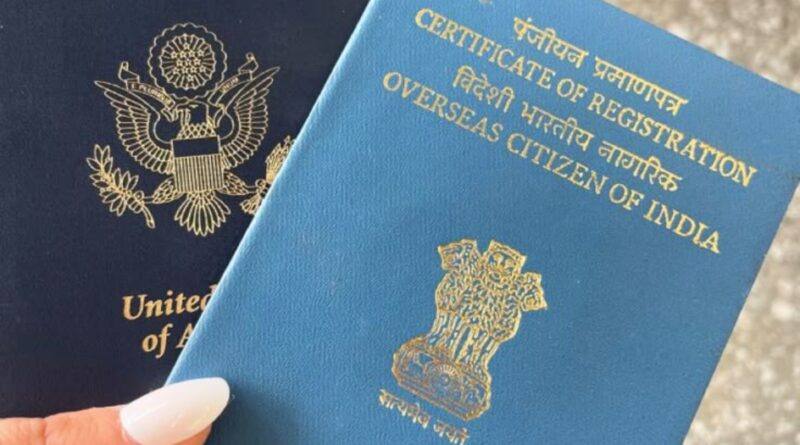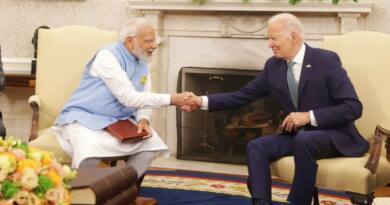OCI Misnomer: This Is A Visa, Not Citizenship Now
By Melwyn Williams | World Politics | The WFY Magazine, December 2025 Edition
The Great Misnomer: Why “Overseas Citizen of India” Isn’t Citizenship At All
The Illusion in a Name
What’s in a name? Sometimes, everything.
For millions of people of Indian origin living abroad, the term Overseas Citizen of India, the “OCI Card”, sounds like a bridge home, a gentle assurance that they still belong. The phrase suggests identity, rights, and even emotional inclusion.
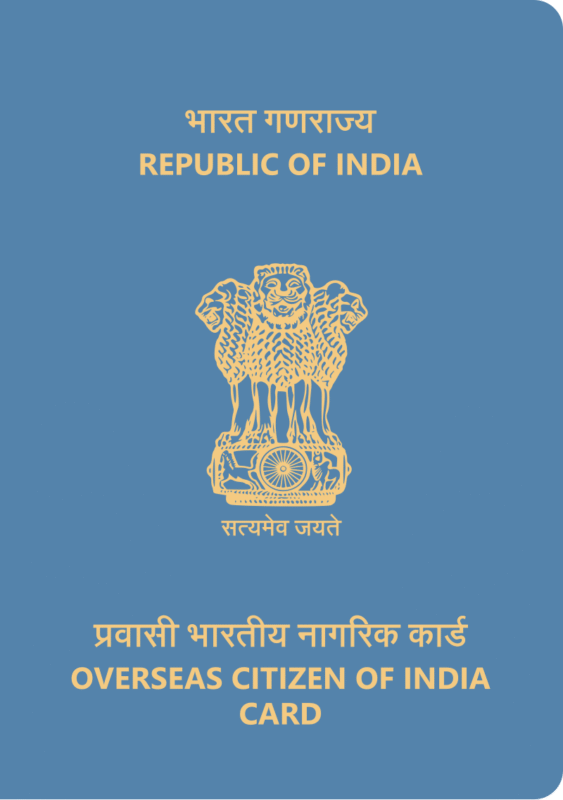
Yet the truth is blunt: there is no citizenship in the Overseas Citizen of India.
It is a visa masquerading as belonging, a long-term entry permit with limited privileges, no political rights, and plenty of confusion attached to it.
The government knows this; the law states this. But the name still says “Citizen.”
And in that single word lies one of the most misleading designations India has ever issued to its global diaspora.
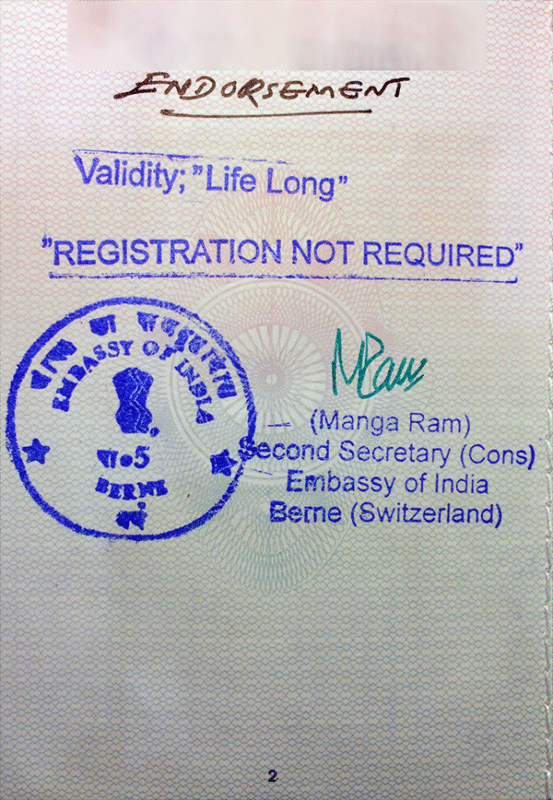
How a Visa Was Dressed Up as Citizenship
When India introduced the OCI Scheme in 2005, it was hailed as a gesture of goodwill to millions of overseas Indians who longed for closer ties to the motherland. The idea emerged after decades of lobbying from expatriate communities, particularly in the US, UK, Canada, and the Gulf, who sought dual citizenship.
But India’s Constitution and the Citizenship Act of 1955 make one thing clear: India does not allow dual citizenship.
Hence, policymakers crafted a workaround, a special registration status under Section 7A of the amended Citizenship Act, and gave it the charming but deceptive title, “Overseas Citizenship of India.”
In legal terms, the OCI is simply a “multiple-entry, multi-purpose lifelong visa.” It allows its holder to live, work, and travel in India indefinitely without applying for new visas each time.
Yet, this practical convenience was packaged in emotionally charged language. “Overseas Citizen” sounded far nobler than “Permanent Visa Holder.” It was clever politics, poor semantics, and even worse law.
What the OCI Card Really Means
Let’s be factual. The OCI card offers several comforts:
- Lifelong, multiple-entry visa to India
- Exemption from registration with the Foreigners Regional Registration Office (FRRO)
- Parity with Non-Resident Indians (NRIs) in economic and educational matters
- The right to own non-agricultural property
- The ability to work in private sectors under most categories
But that’s where the privileges end.
Nowhere does the OCI confer political rights, no right to vote, no right to contest elections, no right to hold government jobs, or constitutional offices.
An OCI holder cannot:
- Vote in any election in India
- Hold a government post or seat in Parliament
- Purchase agricultural or plantation land
- Be employed in the civil or defence services
- Be appointed a judge, governor, or member of a constitutional body
Even the so-called “lifetime” nature of the OCI is conditional. The government retains the power to revoke it at any time, for acts considered prejudicial to national interest, for overstaying foreign citizenship, or even for minor bureaucratic violations.
In essence, it is not citizenship but a concession. And that distinction matters.
The Misleading Promise of Belonging
The emotional pull of the word “Citizen” cannot be overstated.
To the diaspora, citizenship implies membership, a sense of homecoming, a reassurance that “you still belong to India.”
The reality is a bureaucratic contradiction: the OCI card acknowledges Indian ancestry but legally treats the holder as a foreign national.
When an OCI holder buys property, opens a bank account, or joins a university in India, they quickly learn the fine print. “You are not an Indian citizen,” say the forms, the officers, the systems.
The confusion is so deep that even Indian institutions misinterpret it. Some universities have wrongly denied admissions to OCIs citing “foreign status,” while others have treated them as NRIs, leading to fee disputes and lawsuits.
For families who return after decades abroad, this is not mere semantics, it’s a shock of identity.
A Legal Fiction, Not a Constitutional Fact
Legally, India recognises only one kind of citizenship that defined by Articles 5 to 11 of the Indian Constitution and governed by the Citizenship Act of 1955.
The OCI is not recognised as “citizenship” under these provisions.
It is instead a “legal fiction”, an administrative convenience created to accommodate diaspora emotion without violating constitutional boundaries.
In several court rulings, including those by the Delhi and Kerala High Courts, judges have clarified that “OCI status does not amount to citizenship of India.” OCI holders are “foreign nationals” with “visa privileges.”
Even the Ministry of Home Affairs (MHA) reiterates this on its official website:
“OCI is not to be misconstrued as dual citizenship. OCI cardholders are foreign nationals.”
Then why call it citizenship at all?
When Names Hurt: Confusion, Expectations, and Loss
Names carry consequences. Because of its misleading title, the OCI has become a source of false hope for many Indian-origin individuals.
Take property rights, for instance. Thousands of OCI cardholders have discovered, often after investing their savings, that they cannot buy agricultural land or farmhouses.
Others have been refused certain government scholarships or public-sector jobs. Some discovered that their OCI cards could be revoked after criminal convictions or critical journalism.
The illusion of inclusion turns into the reality of exclusion.
Many expatriates recall being told at Indian missions abroad that the OCI meant “almost like citizenship.” The fine print, buried in bureaucracy, tells another story.
Recent Tightening: The Walls Are Closing In
In recent years, India has actually narrowed OCI privileges.
- The 2021 OCI Notification made prior permission mandatory for journalism, research, or missionary work in India.
- In 2025, the government amended rules to allow revocation of OCI if the holder is convicted for any offence with a two-year prison sentence or more.
- Several foreign journalists and human-rights workers of Indian origin have had their OCI cards cancelled for “prejudicial acts.”
Each new rule reinforces the truth: the OCI is not a right but a revocable favour.
The Comparative Reality Check
| Category | Indian Citizen | NRI (Non-Resident Indian) | OCI Cardholder |
| Legal Status | Indian citizen | Indian citizen living abroad | Foreign national of Indian origin |
| Passport | Indian | Indian | Foreign |
| Right to Vote | Yes | Yes | No |
| Public Office | Yes | Yes | No |
| Property | All types | All types | Only non-agricultural |
| Government Jobs | Eligible | Eligible | Not eligible |
| Duration of Stay | Unlimited | Unlimited | Unlimited, but subject to revocation |
| Revocation Risk | None | None | Yes |
| Political Rights | Full | Full | None |
It’s clear, the word “Citizen” in OCI is a linguistic lie.
Why the Name Must Change
Language matters in law.
A misleading title can distort expectations and erode trust. The phrase “Overseas Citizen of India” has outlived its usefulness and entered the territory of deceit.
Here’s what needs to change:
- Rename the Scheme. Drop “Citizen.” Call it “Overseas Indian Card” or “Permanent Resident of India Card.”
- Redefine Rights. Codify clearly what OCI holders can and cannot do, in a transparent charter.
- Clarify Pathways. For those who truly want citizenship, establish a clear, time-bound conversion process.
- Rebuild Communication. Indian embassies and consulates must explain the difference between “citizenship” and “registration.”
- Protect Against Arbitrary Revocation. OCI status should not be subject to sudden cancellation without due process.
If India wants to honour its diaspora, honesty is the best diplomacy.
A Question for the Diaspora
What does citizenship mean to you, a passport or a sense of belonging?
The Indian diaspora spans 33 million people across 200 countries. Among them, over 6 million hold OCI cards. Many of them believe they still have a constitutional connection to India.
But if citizenship is about equality, participation, and political rights, then OCI is something else altogether, a token, not a tie.
We invite feedback from OCI holders around the world:
- Do you feel the term “citizenship” misleads you?
- Have you faced barriers or revocation threats?
- Do you believe the name should change?
Your stories will help shape a public conversation long overdue, one about honesty in law, clarity in communication, and respect in terminology.
OCI Card: Citizenship Must Mean What It Says
India is proud of its global diaspora, their success, their loyalty, their emotional investment in the homeland. But to honour them, the truth must be spoken plainly:
The Overseas Citizen of India card is not citizenship. It never was. It never will be, until the Constitution itself changes.
To call it otherwise is to blur truth with sentiment, and bureaucracy with belonging.
Names have power. So does honesty.
It is time India gave both their due.
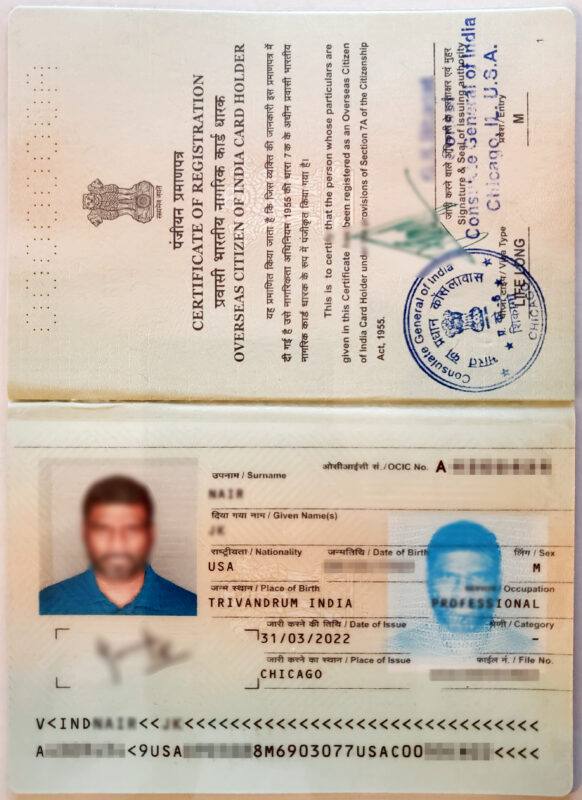
OCI, By the Numbers (As of 2025)
| Metric | Details |
| Introduced | 2005 (Citizenship Amendment Act, 2005) |
| Administered by | Ministry of Home Affairs, Government of India |
| Total OCI Cardholders Worldwide | Approx. 6.2 million |
| Top Countries of Residence | USA, UK, Canada, Australia, UAE, Singapore |
| Eligibility | Persons of Indian origin up to 4 generations; spouses of Indian citizens or OCIs (under conditions) |
| Type of Privilege | Multiple-entry, lifelong visa |
| Voting Rights | ❌ None |
| Public Office Eligibility | ❌ None |
| Land Ownership | Residential & commercial property allowed; agricultural & plantation land prohibited |
| Employment in Govt/Public Sector | ❌ Not permitted |
| Revocation Grounds | Fraud, criminal conviction (≥ 2 years), acts prejudicial to India’s sovereignty |
| Recent Amendments | 2021 – tighter permissions for journalism & research; 2025 – new revocation clause for criminal convictions |
(Sources: Ministry of Home Affairs, MEA, 2025 Gazette Notifications, and media reports)
Are you an OCI cardholder or an Indian-origin professional living abroad?
The WFY Bureau invites you to share your views and experiences for an upcoming diaspora survey.
Questions to Reflect On:
- When you first heard of the OCI card, what did you believe it meant?
- Do you think the term “Overseas Citizen of India” misleads people?
- Have you faced any misunderstanding or denial of service because of OCI limitations?
- Should India rename the scheme to remove the word “Citizen”?
- What would real recognition from India look like to you, emotional, legal, or both?
The term Overseas Citizen of India (OCI) sounds empowering, but it’s a legal illusion.
Our December 2025 cover story, The Great Misnomer, examines how India’s most famous diaspora document is not citizenship at all, but a long-term visa dressed up in emotional language.
With over six million cardholders worldwide, confusion runs deep. What does “citizenship” mean when you cannot vote, contest elections, or own farmland? Why call it citizenship if the law insists you’re a foreign national?
WFY invites the Indian diaspora to speak up. Do you hold an OCI? Has the title misled you?
What reforms do you believe India needs to reconnect honestly with its global family?
Send your responses to wfymagazine@gmail.com
Your voice will help build a clearer conversation about identity, belonging, and fairness in India’s engagement with its global diaspora.
Disclaimer: This editorial feature is an original article by The WFY Bureau based on verified public information as of December 2025. It is written in the interest of clarity for Indian-origin individuals worldwide and does not contain quotes or endorsements.

